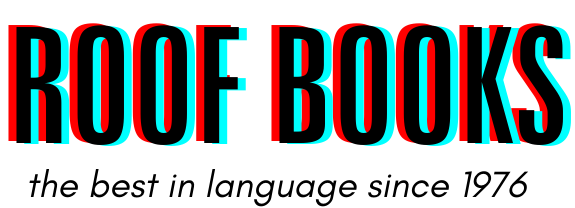PLATO’S CLOSET
by Lawrence Giffin
Plato’s Closet treads indelicately yet with profound subtlety on the subject of community—the polis and the hinterland it populates with idyllic shepherds to distract from the scapegoats, thieves, heretics, and wolves proliferating there. By deploying an overwrought rhetoric by turns misogynist, melancholic, and masochistic, the poems attempt to trace the invisible curves and lumps of imperial masculinity, whose decadence has finally purified it of its civilized ornamentation—to the point where it can perhaps be drowned in the bathtub.
Plato’s Closet’s references range from the classical to Internet porn, Urban Dictionary and gay male fetishism, and features warlords grooming protégés, female soldiers magically sprouting new hardware, and jilted lovers—of empire, of wisdom, of war—whose violent plaints signal the last redoubt of male sexual entitlement.
At one level an arch critique of his friend Rob Halpern’s writing, Giffin, like a good switch, pulls as many punches as he entreats, confusing the desire of poetic discourse as to what side of history it longs to be on. Trigger warning: Plato’s Closet goes all the way. Its characters, those representing Giffin and those representing others, will have their say if you choose to read this book.
“Roll over, Byron, and tell blind Homer the news: in Plato’s Closet, Lawrence Giffin time-travels deep into retro prosodies to create a dissertation on war, poetics, porn, and power. Every line is a tricky and dazzling feat of fierce wit and skill; sometimes it is gross in visceral, interesting ways, giving the lie to one of the poem’s assertions: ‘The poets are all liars. / And besides, the lyres are all broken.’ Giffin speaks bold and evil truths and is a Hendrix-like virtuoso on his unbroken lyre.”
– Nada Gordon
“Dear Lawrence, Reading yr psychotic book, I swear I feel ‘ting’d with a resplendent glow,’ which is what Keats wrote of Byron’s verse when he compared it to a moon-soaked cloud. The whole point is that the militarization of our life world is already the realization of the market’s aestheticization, which makes your lines totally redundant. I mean, the autonomy of yr poem is adjunct to that of a Kalashnikov. Did you write this poem in a cave or a closet? I’ll no longer look for utopia in a piece of military hardware.”
– Rob Halpern, from the Afterword
Lawrence Giffin is the author of several books of poetry, including White Future, Christian Name, and Non Facit Saltus. His work has been anthologized in Against Expression and Best American Experimental Writing 2015. His translation of Alain Badiou's "The Autonomy of the Aesthetic Process" was published in Umbra. More can be found at www.lawrencegiffin.com. He lives in New York City.

